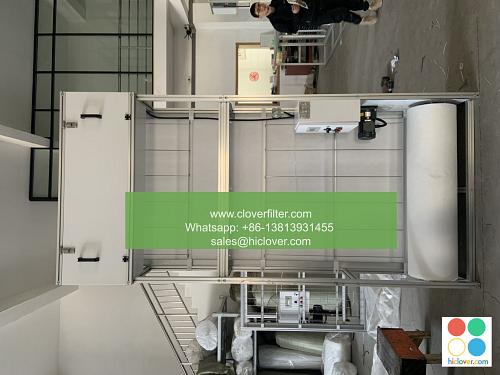The Environmental Benefits of Replacing Air Filters Regularly

Replacing air filters regularly is a simple yet effective way to reduce our carbon footprint, promote sustainable living, and create a healthier environment. In this article, we will explore the environmental benefits of replacing air filters, discuss the indoor air quality implications, and highlight various application areas where regular air filter replacement can make a significant difference.
Reducing Energy Consumption and Greenhouse Gas Emissions
Dirty air filters can increase energy consumption, leading to higher greenhouse gas emissions and contributing to climate change. By replacing air filters regularly, we can improve the efficiency of our heating, ventilation, and air conditioning (HVAC) systems, reduce energy waste, and lower our carbon footprint. This is especially important in commercial buildings and industrial settings, where energy consumption is typically higher.
Improving Indoor Air Quality and Promoting Public Health
Indoor air pollution is a significant concern, particularly in urban areas where air pollution is already a major issue. Regular air filter replacement can help remove particulate matter, volatile organic compounds (VOCs), and other harmful pollutants from the air, improving indoor air quality and promoting public health. This is especially important in schools, hospitals, and other public buildings where people are more vulnerable to airborne pollutants.
Application Areas: Where Regular Air Filter Replacement Makes a Difference
Regular air filter replacement is essential in various application areas, including:
* Residential buildings: Improving indoor air quality and reducing energy consumption in homes.
* Commercial buildings: Enhancing indoor air quality, reducing energy consumption, and promoting sustainable business practices.
* Industrial settings: Improving occupational health and safety, reducing energy consumption, and minimizing environmental impact.
* Transportation systems: Improving air quality in vehicles and public transportation systems.
* Agricultural settings: Reducing air pollution and promoting sustainable agriculture practices.
Best Practices for Replacing Air Filters
To maximize the environmental benefits of replacing air filters, follow these best practices:
* Replace air filters every 1-3 months, depending on usage and air quality conditions.
* Choose high-quality air filters that are designed for your specific HVAC system or application area.
* Consider using energy-efficient air filters or eco-friendly air filters made from sustainable materials.
* Regularly inspect and maintain your HVAC system to ensure optimal performance and energy efficiency.
By replacing air filters regularly and following these best practices, we can reduce our environmental impact, promote sustainable living, and create a healthier environment for ourselves and future generations. It seems like you forgot to include the prompt. Please go ahead and provide one, and I’ll be happy to assist you!

